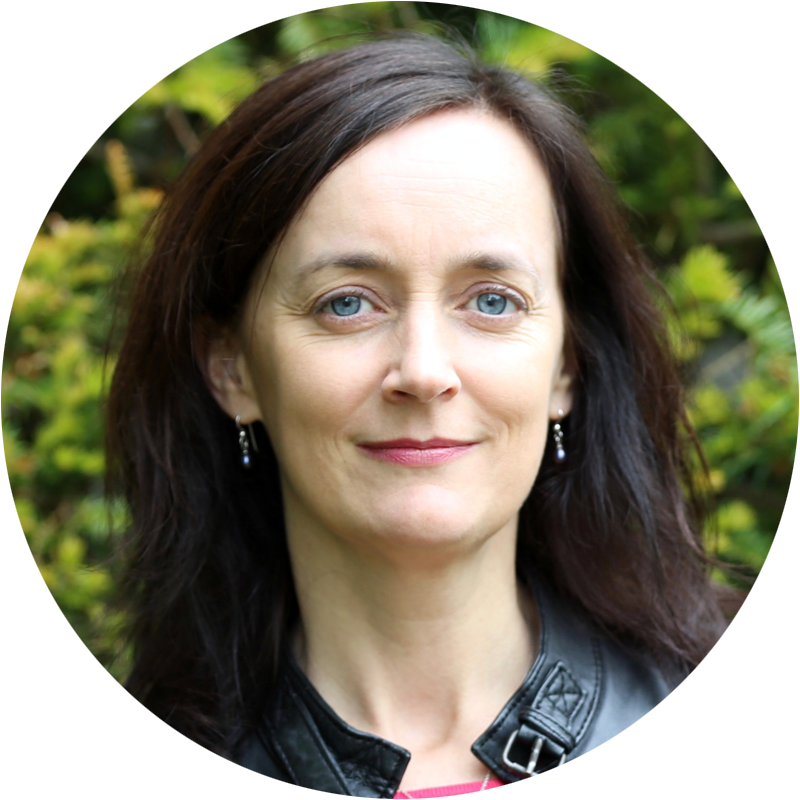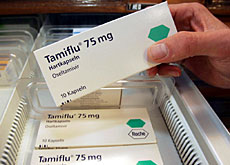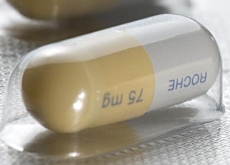Roche under pressure over Tamiflu production

Since the threat of a bird flu pandemic hit the headlines, Swiss-made antiviral Tamiflu has become one of the most talked-about drugs in the world.
At least 50 countries have so far placed bulk orders for the drug. swissinfo visited its producer Roche to find out how the company is handling its special position.
Tamiflu, on the market since 1999, is used in the treatment and post-exposure prevention of influenza.
Experts consider Tamiflu the most efficient treatment in case of an outbreak of human influenza caused by a mutation of the bird flu virus H5N1.
H5N1 has so far infected at least 122 people in Asia and killed at least 62 since the virus resurfaced in late 2003. The strain has recently been found in Romania and Turkey.
Basel-based pharmaceutical giant Roche announced this week that it planned to increase production capacity from the current level of 55 million courses of the drug per year to 300 million by the beginning of 2007.
According to William Burns, head of the pharmaceuticals division, this capacity is significantly larger than the cumulative number of orders the firm has on its books.
New partners
This rapid expansion will be made possible by increasing the number of partners working on different stages of the six-to-eight-month production cycle with Roche.
The pharmaceutical giant has received applications from 150 companies and a number of governments for permission to take on one or more of the ten manufacturing steps for production of Tamiflu. It will complete a shortlist of potential partners by the end of November.
There has been some confusion about Roche’s arrangement with Vietnam. Contrary to some reports, the Vietnamese government has not received permission to manufacture a generic form of Tamiflu, said Roche on Wednesday.
The manufacturing process is lengthy and involves several different processes currently carried out at 13 different sites within and in partnership with Roche.
Roche says that what it has discussed with the Vietnamese government is the possibility of allowing local companies to carry out the final and shortest step of the manufacturing process – transforming the active pharmaceutical ingredient (API) into granulated form and putting it into capsules.
“The next step is to carefully look at the capabilities of those companies… We will provide technical assistance if necessary,” said the head of Roche’s bird flu task force, David Reddy.
Tiered pricing
Roche is applying tiered pricing to the product. The regular ex-factory price for seasonal flu treatment ranges from €20 (SFr 30.77) to €50 per treatment course of ten capsules.
Countries interested in stockpiling Tamiflu for use in a possible pandemic purchase the drug at a lower price – €15 in developed countries and €12 in less developed countries. The capsules have a shelf life of five years.
But governments can also purchase the API for the much lower price of €7.7 per treatment course, or €7 for less developed countries. This white powder can be dissolved in water and is a low-cost alternative for governments for pandemic use only.
Meanwhile Roche has deliberately put the brakes on current over-the-counter availability of the drug to prevent unnecessary private stockpiling. It will release stocks later this winter when the latest regular seasonal influenza strain is in circulation, said Burns.
Generic pressure
The patent for Tamiflu expires in 2016, yet Roche has already come under pressure to allow the production of generic versions of the drug. At least one Indian company has claimed to be able to produce the drug based on reverse engineering.
Roche insists that it is prepared to share information with other companies and cooperate to boost production, as long as this takes place under its own control.
“We’ve stated our willingness to cooperate with companies willing to produce oseltamivir [Tamiflu] in a time frame and in quantities that can contribute to the global scale-up effort,” Reddy said.
The 150 companies it is currently assessing as potential candidates for partnership is the first stage in this opening-up process.
In an effort to allay fears that Tamiflu might not reach the most needy in the event of an outbreak of bird flu, Roche pledged three million treatment courses of the drug to the World Health Organization in August.
The consignment will be ready by the end of March 2006 and will be stored by Roche in Europe and the United States on standby for deployment to the epicentre of an outbreak.
At least 122 cases of bird flu in humans have been confirmed in Asia, resulting in at least 62 deaths.
Most human bird flu cases have been traced to contact with poultry, but experts fear the virus could mutate into a form that could be easily spread among people.
In the event of a bird flu pandemic, it might take six to 12 months to develop a vaccine. In the meantime, Tamiflu would be one of the main drugs relied upon to treat the virus.
Switzerland has already stockpiled enough Tamiflu to cover 25 per cent of the population.
Tamiflu is active against all strains of A and B influenza tested to date, including the H5N1 variant.
The antiviral drug reduces the clinical symptoms and duration of influenza illnesses.
In the year Tamiflu was launched, 1999, Roche produced 5.5 million treatment courses.
The Basel-based pharmaceutical giant plans to increase capacity to 300 million per year by the beginning of 2007.

In compliance with the JTI standards
More: SWI swissinfo.ch certified by the Journalism Trust Initiative




You can find an overview of ongoing debates with our journalists here. Please join us!
If you want to start a conversation about a topic raised in this article or want to report factual errors, email us at english@swissinfo.ch.